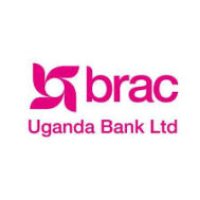Answering to the Manager, Internal Audit and Risk Management, the Internal Audit Assistant
will ensure the University resources are safeguarded and economically utilized by planning
and completing financial audits, identifying inadequate, inefficient, or ineffective internal
controls and recommending improvements.
Duties and Responsibilities
The Internal Audit Assistant will
Assist in planning financial audits by understanding University objectives, structure,
policies, processes, internal controls, and external regulations; identifying risk areas;
preparing audit scope and objectives; preparing audit programs.
2. Assess compliance with relevant regulations and legal requirements by studying existing
and new legislation; enforcing adherence to requirements and advising management
on needed actions.
3. Assess risks and internal controls by identifying areas of non-compliance, evaluating
manual and automated (ERP) financial processes, identifying process weaknesses and
inefficiencies as well as operational issues.
4. Verify assets and liabilities by comparing and analyzing items and collateral to
documentation.
5. Complete audit paper work by documenting audit tests and findings.
6. Communicate audit progress and findings by providing information to management
highlighting unresolved issues, reviewing working papers and preparing final audit
reports.
7. Improve governance by recommending changes in management monitoring,
assessment, and motivational practices, in the internal control structure, and in
operating processes as well as identifying root causes.
8. Support external auditors by coordinating information requirements.
9. Provide financial control information by collecting, analyzing, and summarizing data
and trends.
10. Contribute to team results by welcoming new and different work requirements and
exploring new opportunities to add value to the University.
Required qualifications and experience
I. A Bachelor’s degree in Commerce (Accounting/Finance) or a related field from a
recognized institution
II. CPA (K) / ACCA qualifications.
III. Bonafide member of ICPAK or Institute of Internal Auditors (IIA).
IV. At least 2 years internal audit experience preferably in institution of higher learning.
V. Training in risk and/or fraud management is highly preferable
VI. Certification in information systems audit is an added advantage.
VII. Proficiency in Microsoft Office and familiarity with audit software and ERP system.
VIII. Strong business acumen and ability to identify audit issues.
IX. Strong analytical skills, team player, ability to multi-task, flexible and can work under
pressure.













